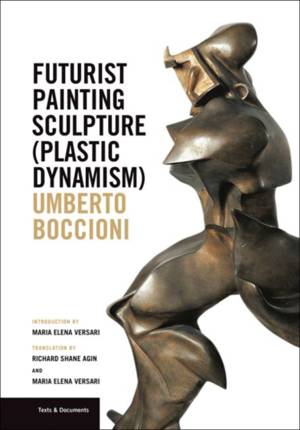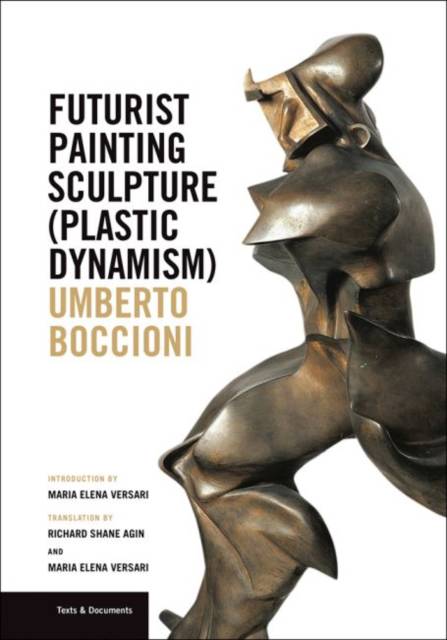
- Retrait gratuit dans votre magasin Club
- 7.000.000 titres dans notre catalogue
- Payer en toute sécurité
- Toujours un magasin près de chez vous
- Retrait gratuit dans votre magasin Club
- 7.000.0000 titres dans notre catalogue
- Payer en toute sécurité
- Toujours un magasin près de chez vous
Description
Futurist Painting Sculpture (Plastic Dynamism), a truly radical book by Umberto Boccioni (1882-1916), claimed a central position in artistic debates of the 1910s and 1920s, exerting a powerful influence on the Italian Futurist movement as well as on the entire European historical avant-garde, including Dada and Constructivism. Today, Boccioni is best known as an artist whose paintings and sculptures are prized for their revolutionary aesthetic by American and European museums. But Futurist Painting Sculpture demonstrates that he was also the foremost avant-garde theorist of his time. In his distinctive, exhilarating prose style, Boccioni not only articulates his own ideas about the Italian movement's underpinnings and goals but also systematizes the principles expressed in the vast array of manifestos that the Futurists had already produced. Featuring photographs of fifty-one key works and a large selection of manifestos devoted to the visual arts, Boccioni's book established the canon of Italian Futurist art for many years to come. First published in Italian in 1914, Futurist Painting Sculpture has never been available in English--until now. This edition includes a critical introduction by Maria Elena Versari. Drawing on the extensive Futurist archives at the Getty Research Institute, Versari systematically retraces, for the first time, the evolution of Boccioni's ideas and arguments; his attitude toward contemporary political, racial, philosophical, and scientific debates; and his polemical view of Futurism's role in the development of modern art.
Spécifications
Parties prenantes
- Auteur(s) :
- Traducteur(s):
- Editeur:
Contenu
- Nombre de pages :
- 304
- Langue:
- Anglais
- Collection :
Caractéristiques
- EAN:
- 9781606064757
- Date de parution :
- 01-06-16
- Format:
- Livre broché
- Format numérique:
- Trade paperback (VS)
- Dimensions :
- 175 mm x 254 mm
- Poids :
- 907 g

Les avis
Nous publions uniquement les avis qui respectent les conditions requises. Consultez nos conditions pour les avis.






